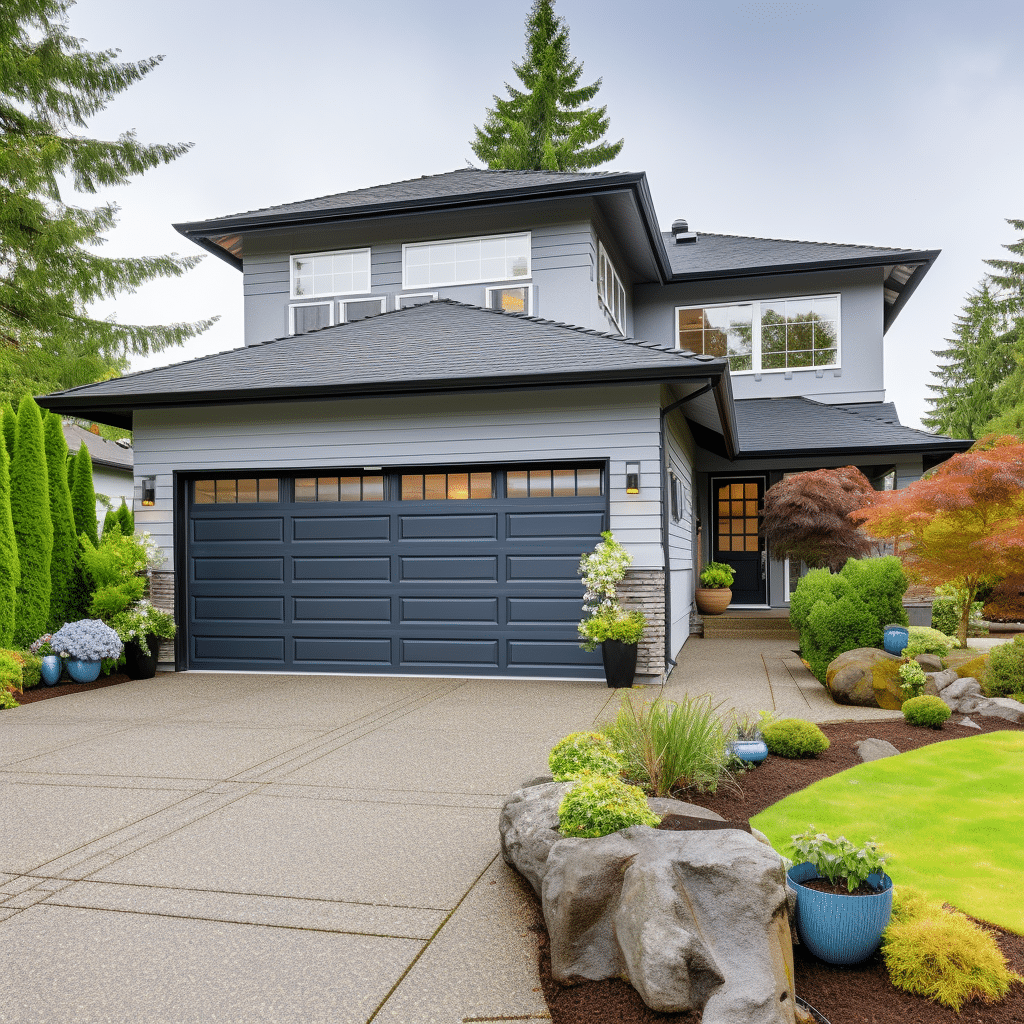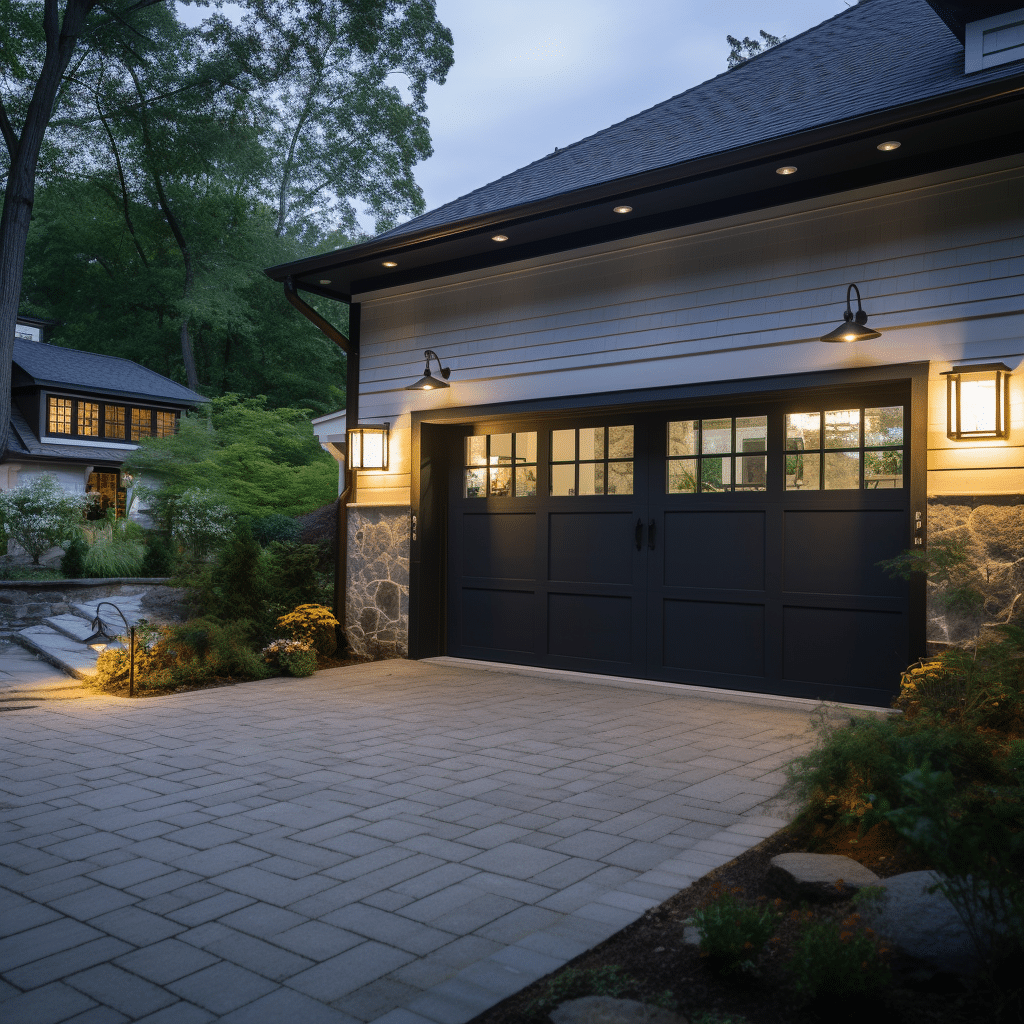Introduction
Will Garage Door Work Without Sensors: Garage doors are an essential part of any home, providing security and convenience for homeowners. One of the key components of a garage door system is the sensors, which are designed to detect any obstructions in the door’s path and prevent it from closing. These sensors are typically located near the bottom of the door and use infrared technology to detect objects in their path. However, there may be instances where the sensors are not functioning properly or have been damaged, leading homeowners to wonder if their garage door will still work without them.
It is important to note that garage door sensors are a safety feature that is required by law in many areas. They are designed to prevent accidents and injuries by stopping the door from closing if there is an obstruction in its path. Without these sensors, the door could potentially close on a person, pet, or object, causing serious harm or damage.
It’s possible to use a garage door opener without sensors, but it’s not safe. Sensors stop the door from closing if there’s something in the way, making it safer. Keep sensors functioning well and get them checked by a professional if there are issues. Some people disconnect or bypass sensors, but this is dangerous. If the sensors are gone, the door can close on a person or object, causing harm or damage.
Can you operate garage door opener without sensors?
Garage door openers have become an essential part of our daily lives, providing convenience and security. These devices are equipped with sensors that detect obstacles in the path of the door, ensuring safety for both people and property. However, there may be situations where the sensors malfunction or need to be temporarily disabled. This raises the question: can you operate a garage door opener without sensors?
You can open a garage door without sensors, but it’s not safe. Sensors stop the door from closing when something is in the way, which prevents injuries or damage.
If sensors break, people might consider bypassing them to open and close the door temporarily. But it’s important to fix them quickly to keep the system safe.
Sometimes, you might need to operate the door manually during repairs. If this happens, make sure to take extra precautions for safety.
It’s not a good idea to run a garage door without sensors because it’s not safe. Sensors are important safety features and should only be disabled if necessary. If they break, fix them as soon as possible to keep the garage door opener safe.

Will garage door work with sensors disconnected?
Garage doors are an essential part of any home, providing security and convenience. They are equipped with various safety features, including sensors that detect obstacles in the door’s path. These sensors are designed to prevent accidents and injuries by stopping the door from closing if something is in its way. However, there may be instances when you need to disconnect the sensors, such as during maintenance or repairs.
You can use a garage door opener without sensors, but it is not safe. Sensors stop the door from closing if there is something in its path, preventing injury or damage. It depends on the garage door opener whether it can work without sensors, but this is not recommended. If the sensor are disconnected, the door may not detect obstacles and could close on people or objects, causing harm or damage. Some openers automatically reverse if an obstacle is detected, which won’t happen without sensors. Tampering with sensors can also void the warranty. It is best to keep sensors connected and maintained for safe and reliable operation.
Do you have to have sensors on garage door?
Yes, it is highly recommended to have sensors on garage doors for safety reasons. Garage doors are heavy and can cause serious injuries or even fatalities if they close unexpectedly on a person or object. Sensors are designed to detect any obstructions in the path of the garage door and prevent it from closing fully if something is detected. This ensures that no one gets trapped under the door or injured by its closing mechanism.
Garage door sensor are placed at the bottom of the door on both sides. They use an invisible beam to communicate between a transmitter and receiver. If something blocks the beam, like a person or pet, the door won’t close. This is important for homes with kids and pets. Building codes in some areas require garage door sensor, and not following them can lead to fines. You can connect modern garage door sensor to smartphone apps or home automation systems for convenience and peace of mind. You can check the door’s position from anywhere.
When did garage door sensors become mandatory?
Garage door sensor have become an essential safety feature in modern homes. These sensors\ are designed to detect any obstructions in the path of a closing garage door and prevent accidents or damage.
Garage door sensor are located at the bottom of the door and use infrared beams to communicate. When the door closes, the transmitter sends a beam to the receiver. If something interrupts the beam, like a person or pet, the door stops closing. This is important for households with children and pets. Before the 1990s, garage doors had no safety features and accidents occurred where people and objects were trapped under closing doors. To address safety concerns, the Consumer Product Safety Commission (CPSC) made garage door sensor mandatory. The CPSC is a federal agency that protects the public from injury or death caused by consumer products. Garage door sensor became mandatory in 1993 and all new garage door openers must have them. Homeowners with older garage door openers should have sensor installed for safety.
Will garage door work with one sensor?
Garage doors are an essential part of any home, providing security and convenience for homeowners. One important component of a garage door system is the sensor, which are responsible for detecting obstacles and ensuring the door operates safely. However, there may be instances where one of the sensor malfunctions or becomes damaged, leaving homeowners wondering if their garage door will still work with just one sensor.
Using only one garage door sensor is possible but not recommended due to safety concerns. These sensors work in pairs, with one emitting a beam and the other receiving it. When an obstacle disrupts this beam, the sensors instruct the door opener to halt or reverse the door’s motion.
Relying on a single sensor increases the risk of accidents and damage. Most modern garage door openers require both sensors to function for safe operation. If one sensor is malfunctioning, the opener may not work at all, ensuring proper door operation and safety.
Garage door sensor are necessary for safe and efficient operation. Without them, the door may still function, but not safely. The absence of sensors makes it unable to detect obstacles, increasing the risk of accidents, injuries, and damage. Regular maintenance and prompt sensor issue resolution are crucial for safe and proper garage door functioning.
Is it possible for a garage door to operate without the presence of sensors?
Yes, it is possible for a garage door to operate without the presence of sensor, but it is not recommended. Sensors play a crucial role in ensuring the safety of both people and property. These sensor are typically installed near the bottom of the garage door and detect any obstructions or objects in the door’s path. When an obstruction is detected, the sensor send a signal to the garage door opener to stop or reverse the door’s movement, preventing accidents or damage.
Without sensors, the garage door will still function and open or close when commanded, but it will lack the ability to detect obstacles. This means that if there is an object or a person in the door’s path, the door will continue to close, potentially causing harm or damage. It is important to note that operating a garage door without functioning sensors poses a significant safety risk and should be avoided.
Will a garage door still work if the sensors are not connected or malfunctioning?
Garage door sensors play a crucial role in ensuring the safe and proper functioning of the door. These sensors are designed to detect any obstructions or objects in the path of the closing door, preventing accidents and damage. However, in some cases, the sensors may become disconnected or malfunction, raising the question of whether the garage door can still operate without them.
The answer to this question is yes, a garage door can still work if the sensors are not connected or malfunctioning. However, it is important to note that operating a garage door without functioning sensor poses significant safety risks. Without the sensor, the door will not be able to detect any obstructions in its path, increasing the chances of accidents or damage to property.
It is crucial to understand that garage door sensor are not optional features but rather essential safety mechanisms. They are designed to protect individuals, vehicles, and other objects from being crushed or trapped by the closing door. Therefore, it is highly recommended to never bypass or disable the sensors in an attempt to make the door function without them.
Can the sensors be bypassed or disabled and the garage door still function?
Yes, it is possible to bypass or disable the sensor and still have the garage door function. However, it is important to note that doing so can compromise the safety of the garage door system. The sensor are designed to detect any obstructions or objects in the path of the closing door, and they play a crucial role in preventing accidents or injuries.
By bypassing or disabling the sensors, you are essentially removing this safety feature from the garage door. This means that the door will continue to close even if there is an obstruction in its path, posing a potential risk to people or objects that may be in the way. It is strongly recommended to never bypass or disable the sensors unless absolutely necessary, and even then, it should only be done temporarily and with extreme caution.
Is it safe to operate a garage door without functioning sensors?
Operating a garage door without functioning sensor is not safe and is strongly discouraged. The sensors play a crucial role in ensuring the safety of both people and property. They are designed to detect any obstructions or objects in the path of the closing door, preventing accidents and damage.
Without functioning sensor, the garage door may not stop or reverse its movement if it encounters an obstacle. This can lead to serious injuries or even fatalities, especially if a person or pet is in the way. Additionally, the door may continue to close and cause damage to vehicles, bicycles, or other objects that are in its path.
Prioritizing safety is crucial. Sensors must be installed and functioning properly. Regular maintenance and testing are necessary for effectiveness. If there are any issues, contact a professional technician for prompt inspection and repair.

Conclusion
Garage door sensors detect obstructions and people using infrared technology. They stop the door from closing and are important for households with children or pets. These sensors also protect vehicles and belongings in the garage by preventing the door from closing on them. It is important to have functioning sensors to avoid damage caused by the garage door.
Lastly, it is important to note that operating a garage door without sensors may be against local building codes and regulations. These codes are put in place to ensure the safety of residents and to prevent accidents. Many jurisdictions require garage doors to have functioning sensors as a safety measure. Therefore, disabling or removing the sensors may result in fines or other legal consequences. It is always best to comply with these regulations and prioritize the safety of yourself and others.
Having a working garage door sensor is crucial for safety, property protection, and following regulations. If you have problems with your sensor, seek help from a professional. Find out if your garage door can work without a sensor, and understand the significance of sensors for your garage door’s safety and performance.

